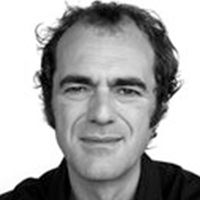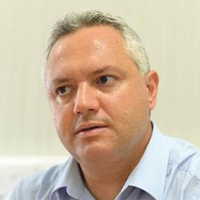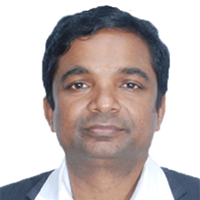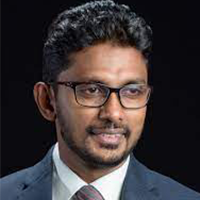Partners
Project Coordinator




Global Disaster Resilience Centre (GDRC) at the University of Huddersfield, UK is a global leader in multi-disciplinary research, education, and advocacy to improve the resilience of nations and communities. What would it be like to live in a world in which government authorities, businesses, communities, and individuals work together to create a society that is able to withstand the effects of unforeseen events and threats? At GDRC, we are working with stakeholders at the global, national, and local level to make this happen. This work includes the support of stakeholders towards implementation of The Sendai Framework for Disaster Risk Reduction 2015-2030. Our work: Tackles disaster risk factors and scenarios, including emerging climate and disaster risks; Supports action by local communities and authorities; and Supports the interface between policy and science for decision-making. GDRC is a key partner of the UNDRR (UN Office for Disaster Risk Reduction) Making cities resilient campaign and is also a member of the UNHABITAT University network initiative. It is working with its large number of partners to raise awareness and commitment for sustainable development practices that will reduce disaster risk and increase the wellbeing and safety of citizens. Members of GDRC have published collectively more than 400 peer reviewed papers in the field and generated more than £10 million in research income. GDRC has led a large number of research capacity building programmes with a large number of international HEIs focusing on establishing, improving and sustaining research capability and capacity; developing comprehensive and robust plans and sets of activities to support Early Career Researchers and improve mentoring of staff, and supervisory capabilities; supporting the development of research skills; and, promoting international agenda including research collaborations. GDRC won the Prestigious 2019 Newton Prize. Its winning entry was based on their “Mainstreaming Integrated Disaster Risk Reduction and Climate Change Adaptation into Coastal Urban Agglomeration Policy” project and their new proposal which looks into “Developing and harmonising local tsunami early warning”. We are the winning team amongst 150+ projects. Newton Prize recognises the best research and innovation projects which create an impact socially and economically, between Indonesia and the United Kingdom from 2016 to 2019. Newton Prize is supported by the UK’s Department for Business, Energy, and Industrial Strategy (BEIS), Newton Fund and Global Challenges Research Fund (GCRF). In 2018, GDRC won the UALL International Award for 2018 for the CADRE (Collaborative Action towards Disaster Resilience Education) project. The award was given for the best innovative partnership that created change in an international context and recognises innovative engagement, including partnerships, that create change in an international and transnational context. Criteria for assessment included: Innovation and Creativity, Impact and Transferability. The University of Huddersfield’s (HUD) roots go back 177 years via the Huddersfield Mechanics’ Institute. Throughout its history the University has been committed to meeting the needs and aspirations of its students. HUD is a successful, popular, and innovative modern University that offers a wide range of education, training and research facilities and we are proud of our achievements. The University has approximately 2500 staff and has a student population of over 18,000 from more than 130 countries undertaking a wide range of courses covering the wealth creating, cultural and social welfare aspects of our economy, and is a growing centre of research and excellence and we always push the boundaries of knowledge. HUD was named Times Higher Education University of the Year in 2014.We are proud to have been recognised as a gold-rated University by the Teaching Excellence Framework (TEF). This framework has been introduced by the Government and aims to recognise and reward excellent learning and teaching. The TEF Panel judged that HUD delivers consistently outstanding teaching, learning and outcomes for its students. It is of the highest quality found in the UK. In 2017, HUD won the first Global Teaching Excellence Award recognising the University’s commitment to world-class teaching and its success in developing students as independent learners and critical thinkers. Figures released by the Higher Education Funding Council for England see the HUD comes top of all the universities in England for the proportion of staff with teaching qualifications. And HUD is the UK’s only university where 100% of permanent teaching staff are Fellows of the Higher Education Academy. HUD has seven Schools and centralised support services for Research and Innovation, Human Resources, Finance and Marketing. HUD has an annual turnover of approximately £150 million and is to be worth £300 million annually to the local economy.
Project Partners

Lund University (LU) was founded in 1666 and is ranked among the world’s top 100 universities. The University has 40 000 students and 8 160 staff based in Lund, Helsingborg and Malmö. They are united in our efforts to understand, explain and improve the world and the human condition. The University offers one of the broadest ranges of programmes and courses in Scandinavia, based on cross-disciplinary and cutting-edge research. it has a distinct international profile, with partner universities in 70 countries. It has an annual turnover of SEK 8.8 billion, of which close to 60% goes to research. Its research is characterised by both breadth and strength. Two of the world’s foremost research facilities for materials research and life science are established in Lund. MAX IV, which was inaugurated in June 2016, is the leading synchrotron radiation facility in the world. The European research facility ESS will be the world’s most powerful neutron source when it opens for research in 2023. MAX IV and ESS will have a major impact on future scientific and industrial development in both materials’ science and life science. Ideon Science Park, Medicon Village and Science Village Scandinavia are closely linked to Lund University, integrating research, innovation, and entrepreneurship. The Division of Risk Management and Societal Safety where BEACON will be located, conducts research about how people, organisations and society prepare for, deal with, and recover from events that might threaten something of value. The division also plays an important role for several educational programmes at Lund University on both bachelor, master, and PhD level. International co-operation with other universities and organisations is central to the work at the division. The Division of Risk Management and Societal Safety plays an important role for several educational programmes at Lund University by being responsible for several key courses in the programmes. Apart from courses that are part of educational programmes, the division also offers learning laboratories and short courses for practitioners. The division was established 1 January 2014 and was before that part of the Department of Fire Safety Engineering and System Safety. Lund University as a whole employs 4,548 permanent staff and 2,843 temporary staff. The Division of Risk Management and Societal Safety has in total 20 staff members between permanent staff and PhD researchers who are also according to the Swedish system are employed by the University. The Division has two permanent professors and one guest professor.


The University of Cantabria (UC) is a Spanish university with around 1,600 researchers and 13,200 students (from which 740 are PhDs), 4 associated research centres (two of which are joint initiatives with the Spanish Research Council, CISC, and 160 R+D groups from 32 departments. UC is one of 9 Spanish universities selected in the “Campus of International Excellence” Programme, promoted in 2009 by the Spanish Government in the first call. The Environmental Hydraulics Institute “IHCantabria” (UC-IHC) is a joint research centre that carries out research, knowledge transfer and training of specialists in the fields of fresh and saltwater. It was founded in 2007 integrating two university research groups with over twenty years of expertise in the fields of hydrodynamics; sediment transport; coastal evolution; coastal structures; coastal/ports/river engineering; estuarine dynamics; transport processes; marine and river environmental sciences; water quality; natural and anthropogenic coastal risks; numerical and physical modelling of water-related processes and integrated coastal and river basin management. The UC-IHC is fully involved with R&D Spanish or international programmes, independently or jointly with universities, institutes, or companies worldwide. The UC-IHC has been involved in EU FP5 programs, FP6, EU FP7, H2020 (TELWIND, UPWAVE, MARIBE, ERANET4CS, HYDRALAB+), ERASMUS + (TROYO, CABARET); ERANET (SEAPORTS, CAPTOW) and COST actions (EMBOS, PESFOR-W, OCEANGOV). Since 2003, the UC-IHC has provided scientific and technical assistance to the Environment Dept of the Regional Government regarding different tasks for the development of the Water District Plans including: hydrology modelling, risk assessment (flooding, water quality). It also participated at the intercalibration exercise of biological elements for the harmonization of the ecological status assessments carried out along Europe and coordinated by JRC, leading the vegetation NEA GIG. At the National level, UC-IHC supports the Spanish Ministry of Environment for the development of the National Report on Integrated Coastal Zone Management required by the 2002/413 ICZM Recommendation. UC-IHC has also prepared a catalogue of measures for management plans of flooding risks on the Spanish coast. The UC-IHC also takes an active part of the Intergovernmental Oceanographic Commission (IOC) – UNESCO, as co-chairman in WG1 in the ICG/NEAMTWS. Researchers of UC-IHC have been also actively involved in different master and PhD programs (200 Masters’ Thesis and 61 PhD), within the discipline of the Environmental Hydraulics and the Hydrobiology, which were awarded the highest rank given by the Spanish Ministry of Education. Currently, two master programs (Harbour and Coastal Engineering / Integrated Management of Water Systems) and one PhD program (Coastal Engineering, Hydrobiology and Environmental Management of Aquatic systems) constitute good examples of transdisciplinary and innovative High Education approaches, focused on a continuous learning update of practical skills and competences for students and professionals.

University of Malta (UM) is the sole public and highest teaching institution in Malta and its structures are in line with the Bologna Process and the European Higher Education area. UM has a 400-year history and there are over 11,000 students including 1000 foreign/exchange students from nearly 92 different countries, following full-time or part-time degree and diploma courses, with 3,500 students graduating each year. UM is comprised of 14 Faculties and several interdisciplinary Institutes and Centres. Besides the main campus, situated at Msida, there are three other campuses: Valletta, Marsaxlokk, Gozo. The University has been involved as coordinator and partner in numerous EU-funded projects under various Programmes including FP5/6/7, Horizon 2020, Lifelong Learning Programme, Culture 2000, Tempus, Erasmus+, INTERREG EU-MED-ITALIA MALTA-ENPI CBC MED and various other international and national programmes and initiatives. The University is also represented in a number of European and international University networks and groups. Furthermore, UM team will be supported by the following departments: (i) Research Support Services Directorate; (ii) Project Support Office; (iii) Knowledge Transfer Office; (iv) Communication office; (v) Centre for Entrepreneurship and Business Incubation; (vi) Legal office; and (vii) IT services. The University of Malta participation will be primarily from the Department of Construction and Property Management, Materials Engineering and Structural Vulnerability group active in Eco Materials and waste recycling, cement & concrete research and durability performance, Life Cycle Analysis and Sustainable Construction and Structural Vulnerability and Resilience. In addition, the Research Group collaborates with other departments in Sensor systems for structural health monitoring of structures and durability monitoring. The participants bring expertise in various technical aspects of the project including Eco materials, Cement Bound materials and durability performance, transport properties and degradation mechanisms and also sensor systems and technology. The participants have carried out local and internationally funded research projects including collaborative projects. The research group consists of a multi-disciplinary collaborative team with Prof. Ruben Paul Borg as lead academic for Materials and Vulnerability, with other academics including Prof. Edward Gatt (Sensor network systems), Dr. Glorianne Borg Axisa (Education and Geography); Prof. J. Buhagiar (Bio-Sustainable Materials); 2 PhD students (Materials and sensor network systems); Various Masters students; 2 (Paid) Research Officers; Laboratory staff and other support staff.

Founded in 1921, University of Colombo is the oldest University in Sri Lanka. It is ranked No. 01 in Sri Lanka and 1001 internationally. The University of Colombo has 9 faculties with 56 Academic Departments, a Campus, a School, 7 Institutes and 8 Centres and Units. This renowned university provides unmatched knowledge, skills, and timely research exposure to its student population of more than 10,000 in number. The University also has a well-recognized team of academic experts who have both national and international experience and exposure in their relevant fields. The University of Colombo has a strong commitment towards research. Academics in various disciplines engage in high quality research of local and international relevance. The Faculty of Arts is the largest in the University of Colombo in terms of student enrolment. Its vision is to be a Centre of excellence in Creative thinking, Teaching, Research and Community outreach in the South Asian Region and its mission is to promote collectively scholarship, critical inquiry, competencies and skills in the Social Sciences and Humanities in keeping with the highest academic and ethical standards in teaching, research, training and evaluation. The faculty has eleven academic Departments and several teaching Units offering courses in the field of Social Sciences. Apart from undergraduate BA courses, several Departments offer courses for Diploma, Masters and Ph.D. degrees. The Faculty of Arts has responded in various ways to the challenges and problems of higher education and employment. BEACON project will be based at the of SPARC (Social Policy Analysis and Research Centre) of the faculty of Arts. It is a non-profit research centre of the University of Colombo. The Centre is affiliated to the Faculty of Arts of the university and has conducted multi-disciplinary research on disaster management, disaster resilience, built environment, climate change, disaster relocation, development induced relocation, vulnerable groups in post war situation, impact assessments, vulnerability assessments, violence against children and women etc. Since its inception, the research Centre has worked with the government of Sri Lanka, the European Union, the International Labour Organization, the United Nations Organization, Save the Children International, SOS Children’s Village’s International, and other national and international organizations. The establishment of SPARC is the culmination of a process set in motion at the Colombo University several years ago with the launching of the Improving Capacities for Poverty and Social Policy Research (IMCAP) in late 2000. IMCAP was a staff and student development programme to strengthen skills of younger academics from different social science backgrounds on poverty and social policy analysis and research. The programme implemented various research projects with active involvement of staff members from different departments within the Faculty of Arts. Research grants and scholarships were provided to junior and senior academics to undertake significant studies on poverty, alienation of youth, urban housing, education, social and economic security, and conflict impact assessment. IMCAP was also instrumental in the dissemination of research findings in the form of conferences and internationally recognized publications. Additionally, the programme was engaged in substantial networking efforts to establish linkages with other national as well as international universities, research organizations, donors, practitioners, and policy makers. The Centre conducts its research in a selected number of focal areas where it can draw on sufficient expertise and knowledge from within the University. These focal areas are reviewed from time to time in keeping with new experience gained within the University and emerging critical issues that require expert attention. Some of the focal areas of SPARC are: Impact of Globalization and climate change, and Disaster management, resilience, and the importance of the built environment.

‘ University of Moratuwa (UoM), Sri Lanka operates under the general direction of the University Grants Commission. University of Moratuwa, consists of five faculties namely, Architecture, Business, Engineering, Graduate Studies and Information Technology with twenty two (22) academic departments offering twelve (12) Bachelor’s degree programs to students selected by the University Grants Commission (UGC) and fifty-six (56) postgraduate programs together with MSc, MPhil & PhD research-based postgraduate degrees. The university has an undergraduate student population of 9916, and 1050 NDT diploma students of the Institute of Technology of University of Moratuwa (ITUM). University of Moratuwa has a highly qualified academic staff of 423 with an administrative staff of 31. It must be highlighted that the University has been increasing the annual intake of students over 75% overall and 200% in the IT Faculty during the last ten years to meet the increasing demand for our degree programs and thereby catering the human resource development of our nation. UoM, as an internationally positioned Sri Lankan University, aims to provide transformative education in technological and related disciplines, carrying out nationally relevant and highimpact research to expand the boundaries of knowledge and to enhance the national technological capabilities, provide expert services to the State, Industry and the Society, and contribute to sustainable, scientific, technological, social and economic development of Sri Lanka. UoM is a centre for excellence in research and development in innovation and technology, with each Faculty in the university having its own research unit. There are many research and development work being done in the university with industry collaboration, research labs have been established to promote University Industry Partnerships (UIPs). One such outcome is Disaster and Emergency Warning Network (DEWN), only mobile app in Sri Lanka to give the public disaster emergency warnings, has been developed in one of the research laboratories. Furthermore, as a leading technical university of Sri Lanka, improving research and innovation capacity has been given high priority in the university development strategies. It remains a main challenge in particular when considering the need to enhance this capacity for the rapid development of the country. The University Corporate Plan and the Strategic Development Plan has many sectors covering these areas and development of a strong Research and Development capability in order to contribute to national development activities. In doing so it is believed that the university will benefit from consultation with national stakeholders and international collaboration with particular reference to sharing experiences and success stories. The Department of Civil Engineering (DoC) at UoM, is one of largest Civil Engineering departments in the country. Due to its large size and expertise in diverse areas, the Department operates under six divisions, all of whom conduct postgraduate taught programmes and research programmes leading to Masters and PhD qualifications. The quantum of teaching, research and consultancy activities handled by the Department perhaps makes it one of the most active Departments in the University. BEACON will be based within this department. During past decade, during many disasters including which were induced by the extreme climate, DoC has played a leading role by providing technical guidance, research innovations and academics chaired many national committees which developed building codes and national guidelines. After Indian Ocean Tsunami (2004), DoC was instrumental in setting up the International Institute for Infrastructure Renewal and Reconstruction (IIIRR), a multi-university international consortium which provides overall leadership in research, education, planning, design and implementation for mitigation of the impact of natural disasters and infrastructure renewal and reconstruction projects in tsunami affected or underdeveloped regions. DoC has been involved in Disaster Risk Management related activities since 2004 Indian Ocean Tsunami and is heavily engaged in research on early warning systems, risk assessment and mitigation. Moreover, DoC has provided the leadership to develop many nationally important guidelines and building regulations for landslides, floods, tsunamis and storm surges. Furthermore, DoC , has experience in collaborating in many international universities and organizations, funded by ERASMUS+, EPSRC, GCRF, World Bank etc.